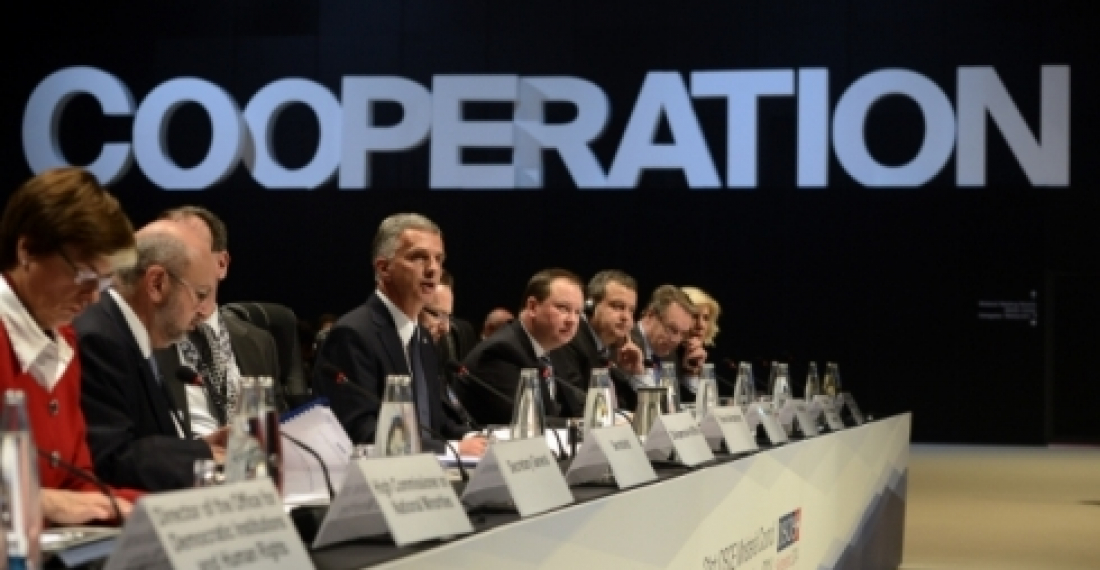This is a commentary prepared by the editorial team of commonspace.eu
The Ministerial Council of the Organisation for Security and Co-operation in Europe (OSCE) was held in Basel on 4 and 5 December, as the one year Swiss Chairmanship of the organisation comes to an end.
The fifty seven member states of the organisation, representing the countries of Europe, North America and Eurasia were unanimous in their praise of how Switzerland has handled the work of the OSCE in the last year, probably the most difficult year for the organisation since it came into existence. The year was overshadowed by the crisis in Ukraine and the break-down of the European security order with the Russian occupation and annexation of Crimea. The Swiss Chairman-in-Office, Foreign Minister Burkhalter described the year as "special", and that perhaps was an understatement. Secretary General Lamberto Zannier more realistically described it in the final press conference in Basel, as one of the most challenging years in the history of the organisation. Indeed the last months could very well have broken the OSCE, but the Swiss Chairmanship managed the challenges in a way that the OSCE succeeded in gaining strength from the crisis.
The results from the Ministerial meeting in Basel were nothing but modest, and in the circumstances this was to be expected. There was no comprehensive final declaration, and nothing very much was said on anything in the few final papers that were adopted. But as Foreign Minister Burkhalter said, it was necessary in the meeting to keep all the sides engaged in dialogue, and to identify areas were co-operation could be continued, even as the divisions on many issues, and particularly Ukraine, remain huge. This objective was achieved. However of course this is only short term success. The major problems remain.
Next year the OSCE marks the 40th anniversary of the Helsinki Final Act. A Helsinki+40 strategy is under discussion, but the differences in the vision between different sides, particularly between Russia and the West, remain huge. It is clear that the OSCE knows where it is coming from, but it remains far from clear where it, and through it the whole future of European security, is going. The organisation therefore has its work for the next two or three years well cut out for it.
Serbia takes over the OSCE Chairmanship in 2015, followed by Germany and Austria in 2016 and 2017 respectively. Thanks to the Swiss Chairmanship the future of the OSCE has been secured at least in the short term. The incoming chairmanships now need to take the process forward.
For the moment however, diplomats can allow themselves a moment of self-satisfaction, and a genuine expression of "well done Switzerland"!
source: This commentary was prepared by the editorial team of commonspace.eu
photo: Swiss Foreign Minister Burkhalter addressing the opening session of the OSCE Ministerial Council in Basel on 4 December 2014. (picture courtesy of the OSCE).







